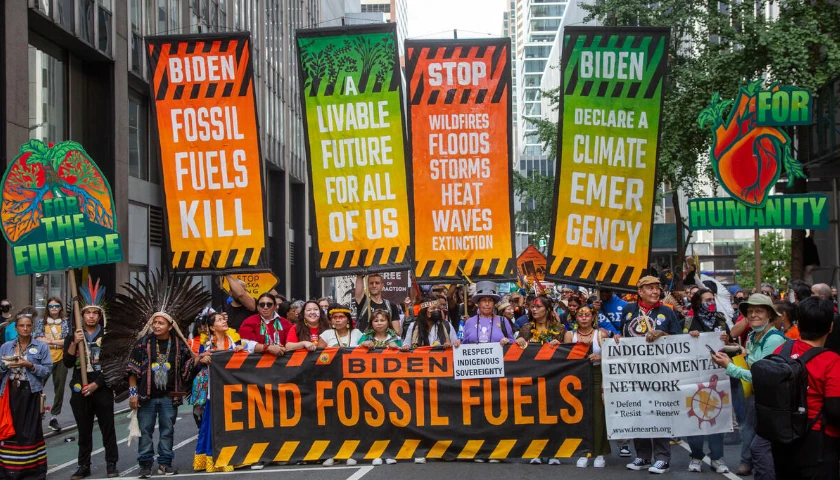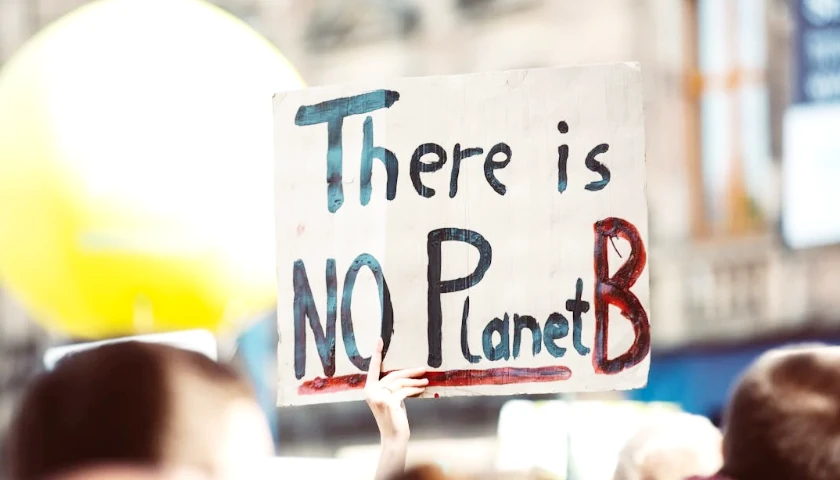by David Blackmon
The recent spate of anti-Israel demonstrations at college campuses could cause déjà vu for North Dakotans, who endured the Dakota Access Pipeline protests in 2016. Like many of the campus protests, the pipeline protests were funded and fueled by big outside groups that showed little concern for the damaging impacts of their actions.
Now, a lawsuit being heard this summer is designed to hold some of these groups responsible for their actions. Energy Transfer, the owner and operator of the pipeline, is suing Greenpeace and other alleged instigators for $300 million for the damages sustained by the company as a result of these protests. The lawsuit claims that these environmental activists spent months spreading false information about the pipeline project and helped fund out-of-state agitators who attacked law enforcement and damaged property during the protests.
 As it relates to the North Dakota controversy, the lawsuit alleges a Greenpeace misinformation campaign began with mass emails falsely claiming that the Dakota Access Pipeline would travel across the sovereign land of the Standing Rock Sioux Tribe, that it would destroy “sacred Native Lands,” and was being approved without proper environmental reviews.
As it relates to the North Dakota controversy, the lawsuit alleges a Greenpeace misinformation campaign began with mass emails falsely claiming that the Dakota Access Pipeline would travel across the sovereign land of the Standing Rock Sioux Tribe, that it would destroy “sacred Native Lands,” and was being approved without proper environmental reviews.
Energy Transfer says none of the claims made by Greenpeace were accurate. It says the pipeline does not cross any Standing Rock land, and the company had made 140 different modifications to its planned route to avoid potentially impacting any culturally important sites. An independent review by the North Dakota Historic Preservation Office later concluded the pipeline affected no historic properties.
Furthermore, the pipeline was approved after years during which multiple environmental studies and reviews were conducted. Pipelines can actually play an important role in improving environmental outcomes because there is a greater likelihood of spills and leaks from other transportation methods like railroads, trucks and barges.
The lawsuit alleges that lies spread by Greenpeace attracted thousands of protesters to North Dakota who soon formed massive encampments.
Energy Transfer claims Greenpeace also helped provide nearly a half-million dollars and additional training to another group of protesters tasked with using violence to stop or delay the pipeline. Greenpeace allegedly continued to support these activities, even organizing fundraising drives across ten cities to collect supplies for the members of the Red Warrior Society. The lawsuit alleges that, in November 2016, members of the encampment raided Energy Transfer property, then lit fires and attacked police with grenades and flares.
In the aftermath of the protests, the suit alleges Greenpeace and its allies left with millions of dollars raised from the protests and their publicity. Meanwhile, North Dakotans were left with the bill to clean-up the environmental disaster of human waste, trash, and abandoned animals left in the encampments. And while the Dakota Access Pipeline was completed, Energy Transfer claims it lost significant amounts of money due to destroyed equipment, security costs, and project delays.
Energy Transfer’s lawsuit seeks to hold Greenpeace and others accountable for these alleged actions. Protesters and the groups that fund them have rights, but so do the individuals and companies who they unfairly malign and attack. The case could be an important reminder to organizations and protesters that free speech is constitutionally protected, but inciting and funding violent actions is not.
– – –
David Blackmon is an energy writer and consultant based in Texas. He spent 40 years in the oil and gas business, where he specialized in public policy and communications.
Photo “Greenpeace Protest” by Tim Aubry / Greenpeace.





